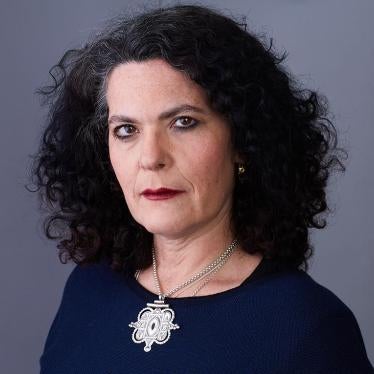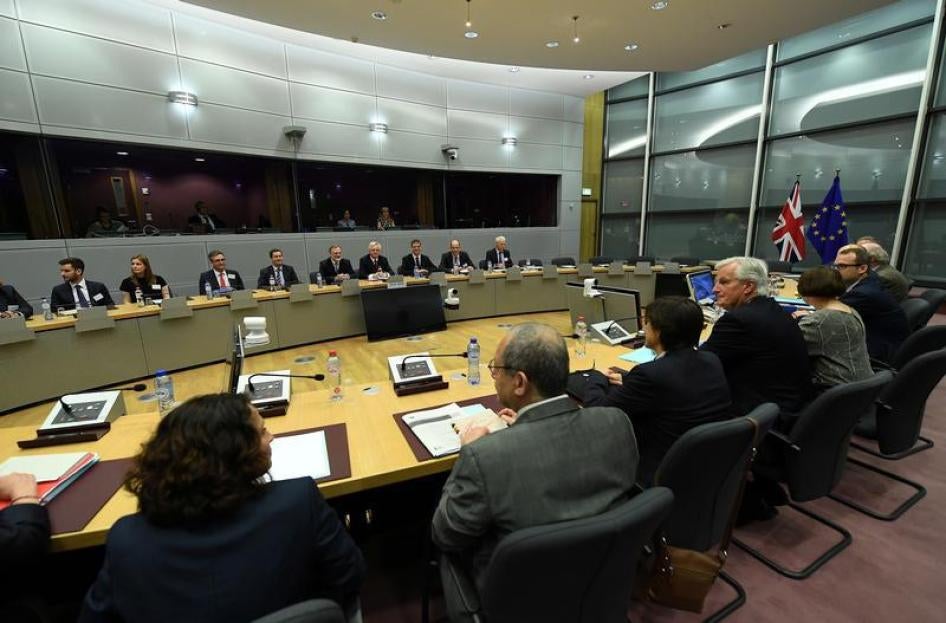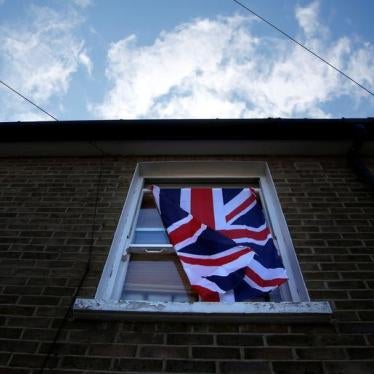When I opened today’s newspaper, I recognized the photograph: another crucial negotiation, determining key questions of security and regional stability. Eleven negotiators sat at the table: five men on one side, five men and one woman on the other. Wider angles of the same photo show more women further down the table, but almost all on the EU side, and the UK government sent a nine-member team that includes one woman. This is exactly the kind of ratio we have criticized again and again elsewhere.
In Afghanistan, for example, I’ve tracked the Taliban peace talks for years, and often lambasted how unfair – and ineffective – it is for two groups of men to sit across the table from each other trying to decide the country’s future.
But this wasn’t talks with the Taliban – it was the first day of Brexit negotiations in Brussels.
Women’s full participation in negotiations related to peace and security isn’t a wacky hippie idea. It’s set out in United Nations Security Council Resolution 1325. In a 2015 review of its implementation, governments noted the continuing absence of female negotiators at various peace talks, and pledged to change. The principle has been accepted and promoted overseas, in places like Afghanistan, by the EU and its member states, including the UK. The UK is even the official lead on this issue at the Security Council, which makes its Brexit team photo even more jarring.
Women need to be at the table for Brexit negotiations, which will play a crucial role in determining the UK’s future security and economic well-being. Brexit also poses specific risks to women. Leaving the EU could mean the UK ditches rights protections derived from EU law, including those related to employment and anti-discrimination.
Women are likely to be disproportionately affected if workers’ rights are undermined, due to gender-based discrimination in the work place, and care-giving responsibilities that often make women more dependent on flexible hours and leave policies. EU law has been critical in banning discrimination against part-time workers – an estimated 75 per cent of whom are women in the UK.
There will be women involved at other stages of Brexit, including of course Prime Minister Theresa May. But the new UK government does not have a single woman minister in the Foreign Office, and just one in the Brexit department.
UK and EU leaders should take immediate steps to ensure that women are full participants in negotiating Brexit. Nothing about us without us – not in Kabul, and not in Brussels.
|
Dispatches
Brexit Without Women
Lack of Female Voices as UK Negotiations With EU Begin
Your tax deductible gift can help stop human rights violations and save lives around the world.
Region / Country
Most Viewed
-
June 3, 2025
“They’re Ruining People’s Lives”

-
January 25, 2024
“We’re Dying Here”

-
November 25, 2019
A Dirty Investment

-
April 27, 2021
A Threshold Crossed

-
November 19, 2012
Losing Humanity






